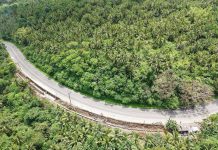TACLOBAN CITY- Gathering and eating of shellfish has been banned in four major water bays in the region due to presence of red tide toxin.
The four bays that have been detected with the red tide toxins are the Matarinao Bay in Eastern Samar; Villareal and Maqueda Bays both in Samar and the Carigara Bay in Leyte.
Dr. Nancy Dayap, head of the laboratory of the Bureau of Fisheries and Aquatic Resources (BFAR), said that due to the presence of the red tide toxins on these bays, gathering, transporting and eating of shellfish has been banned.
Except for Carigara Bay, red tide toxins were detected in these bays last August 15 based on their meat samples taken from these bodies of water.
Carigara Bay, which covers the towns of Barugo, Capoocan, San Miguel, Babatngon and Carigara, was found of the red tide toxin just last Tuesday(August 22).
Based on the shellfish samples they have gathered, the toxicity levels of these bays ranges from 74.82 to 657.92 saxitoxin microgram/ 100 micrograms of shellfish meat.
“The tolerable limit is just 60 saxitoxin microgram/100 microgram of shellfish meat,” Dayap said.
“We are soliciting support from our local government units located in these bays to help us disseminate the information and that a ban was imposed on these bays,” Dayap said.
According to her, red tide toxins are “inherent” to these bays and were just waiting for favorable weather to “bloom again.”
BFAR asked the public to refrain from eating, gathering or harvesting, transporting and marketing shellfish from the affected bays until the toxicity level has gone down below the said limit.
Red tide is a term used to describe the coastal phenomenon in which the water is discolored by high algal biomass or concentration of algae.
Red tides are harmful as they could cause poisoning and death if not properly treated immediately.
There is no antidote and direct treatment for red tide poisoning as treatment is symptomatic and varies with the severity of symptoms, which include pumping the stomach and inducing vomiting.
(JOEY A. GABIETA)



